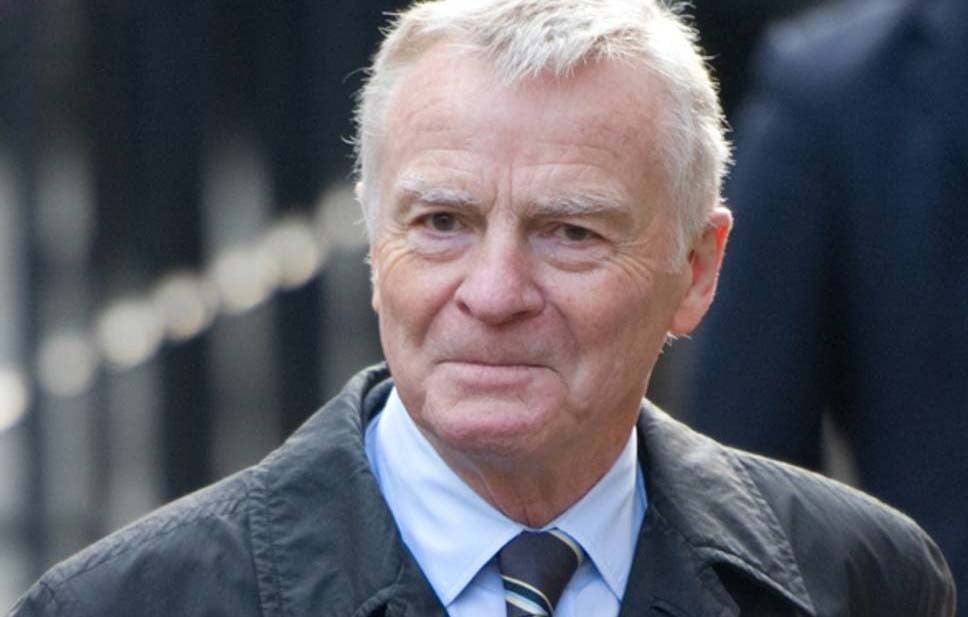
Is the ‘right to be forgotten online’ really just a form of censorship?

Dear All,
The son of the 20th century British Fascist Oswald Mosley is now embroiled in controversy following a newspaper report link linking him to a racist leaflet.
The Daily Mail has unearthed this 1961 leaflet in Manchester Library archives, and shown that the leaflet had Max Mosley’s name (as publisher) on it. Mosley himself had raised doubts about the existence of such a pamphlet when he was questioned about it in court testimony during a case he had brought against another newspaper, the (now defunct) News of the World. Mosley sued that newspaper successfully in 2008 after its report on a party he had hosted which mentioned details of his private life and sexual eccentricities.
Mosley has since then become known as a privacy campaigner, fighting against the excesses of an intrusive press and speaking out for citizens’ ‘right to privacy’.
But the leaflet now raises a number of questions about Mosley’s credibility: most notably did he perjure himself in the 2008 trial when he questioned any knowledge of the racist pamphlet? There is also the question of political influence: he is wealthy, a former motor sport tycoon, and in a position where he can buy political influence: the Labour Party’s deputy leader Tom Watson for example has received over £500,000 in donations from him.
The pamphlet in question was printed in 1961 when Mosley was working as election agent for Walter Hesketh, the candidate of Sir Oswald Moseley’s Union Movement Party. It is highly alarmist and it links coloured immigrants to disease by saying "There is no medical check on immigration. Tuberculosis, V.D and other terrible diseases like leprosy are on the increase… Coloured immigration threatens your children’s health."
Following the Mail’s revelations, Max Mosely was interviewed on Channel 4 news and although he was still questioning the existence of the pamphlet, he conceded that it sounded racist and said, "If that leaflet is genuine, I am responsible for it and it shouldn’t have been issued. I have never been a racist, I am not a racist, never will be a racist," however, throughout the interview he continued to question the authenticity of the leaflet.
The case of Max Mosley illustrates the recent trend toward demanding that erasing one’s past is a citizen’s right. He has painted himself as a champion of the citizens who are bullied and harassed by an increasingly intrusive and unkind media, whereas it now appears that his onslaught on the press is motivated more by his wanting to control and censor his own past.
Ever since the European Court ruled in 2014 that ‘irrelevant’ and outdated articles should be erased from the internet on request, Google has had to deal with a number of requests to this effect and is now facing a legal challenge in England, where a businessman wants all online articles mentioning his conviction in a case of ‘conspiracy to account falsely’ to be erased.
Google’s lawyer argued that the claimant should not be allowed to ‘rewrite history’, and that is basically the issue with this ‘right to be forgotten’ ruling by the European court -- it allows people to both erase and rewrite history. And if you have lots of money then of course the whole process is made a whole lot easier.
Those in favour of such a ‘right to be forgotten’ argue that because of the internet, their lives will continue to be haunted by any past ‘mistake’ or youthful folly and that they should have opportunity to start afresh instead of being perceived in the light of the results of an internet search.
However, the problem with this is that it is very dangerous to give people the opportunity to erase rather than own up to their own past. Moreover, as history has mostly been written by the ‘victor’, it is important that people do not have the facility to tamper with online material. In fact what is far more important is to regulate the large internet companies by curtailing the buying of influence on search engines and emphasising that they must realise they have the responsibility of ensuring that they are not used for the propagation of hate filled narratives.
The internet and social media have played a key role in exposing untruths -- an enduring example in Pakistan is the denial of Jinnah’s secular August 11 speech. Influential commentators implied that it was a fiction created by devious liberals and the General Zia regime seems to have succeeded in eliminating all audio evidence of the speech, but the original (from the Punjab Assembly Archive) was located and shared extensively on social media, thus exposing the deniers.
Let’s not give people and lobbies the right to erase the past, far better to regulate the propagandists.
Best wishes